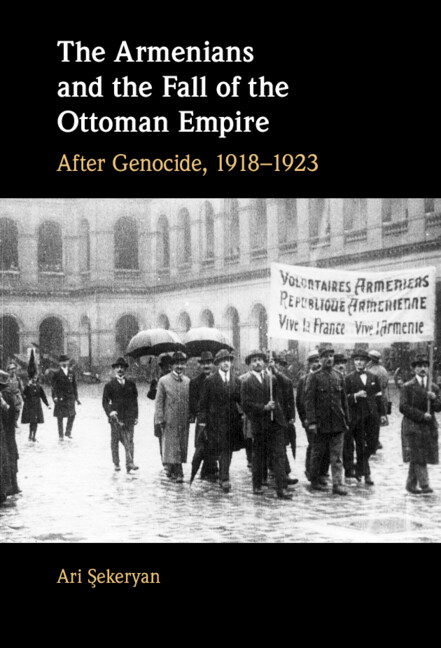The Society for Armenian Studies (SAS) announced this week that Talar Chahinian’s Stateless: The Politics of the Armenian Language in Exile (Syracuse University Press, 2023) and Ari Şekeryan’s The Armenians and the Fall of the Ottoman Empire: After Genocide, 1918–1923 (Cambridge University Press, 2023) have been awarded this year’s Der Mugrdechian SAS Outstanding Book Award. An honorable mention has been awarded to Vartan Matiossian’s The Politics of Naming the Armenian Genocide: Language, History, and ‘Medz Yeghern’ (I.B. Tauris, 2022).

Established in 2015, the Der Mugrdechian SAS Outstanding Book Award accepts nominations for works that advance knowledge and scholarship on Armenian society, culture, and history from ancient times to the present.
Prof. Barlow Der Mugrdechian, Director of the Armenian Studies Program at California State University, Fresno and a past President of SAS, has offered to sponsor the award for the next five years. The Book Award covered works published in the period of May 1, 2019, to April 30, 2021. Winners will receive a $1,000 monetary award from SAS and a certificate of recognition.
Stateless focuses on two key moments and places of Western Armenian literary history, post-WWI Paris and post-WWII Beirut, to examine how a stateless language sustained itself in a diasporic setting. In it, by analyzing the public debates, critical writings, and the creative works of writers gathered around the journal Menk and writers gathered around the Writers’ Association of Syria and Lebanon (WASL), Chahinian comparatively interrogates competing models of literary production and their intersection with Western Armenian’s prolonged linguistic vitality.
“It’s a great honor to receive this recognition from the SAS, whose community of scholars has helped shape the development of my intellectual trajectory,” said Chahinian. “I congratulate my co-winner, Ari Şekeryan, and the recipient of this year’s honorable mention, Vartan Matiossian, both of whose works inspire me. I’m grateful to the SAS for continuing to expand the comparative, multidisciplinary scope of the field and for encouraging scholarship that reimagines the limits of Armenian studies.”

In The Armenians and the Fall of the Ottoman Empire: After Genocide: 1918-1923, Şekeryan examines the survival of the post-genocide Armenian community during the underexplored Armistice years, drawing on an extensive collection of Armenian and Ottoman Turkish primary sources. Şekeryan outlines the community’s shifting political position and the strategies they employed to endure this turbulent period. By focusing on the Ottoman Armistice, Şekeryan sheds light on an oft-neglected period in history and presents a new case study for understanding the political reactions of ethnic groups to the fall of empires and nation-states.









